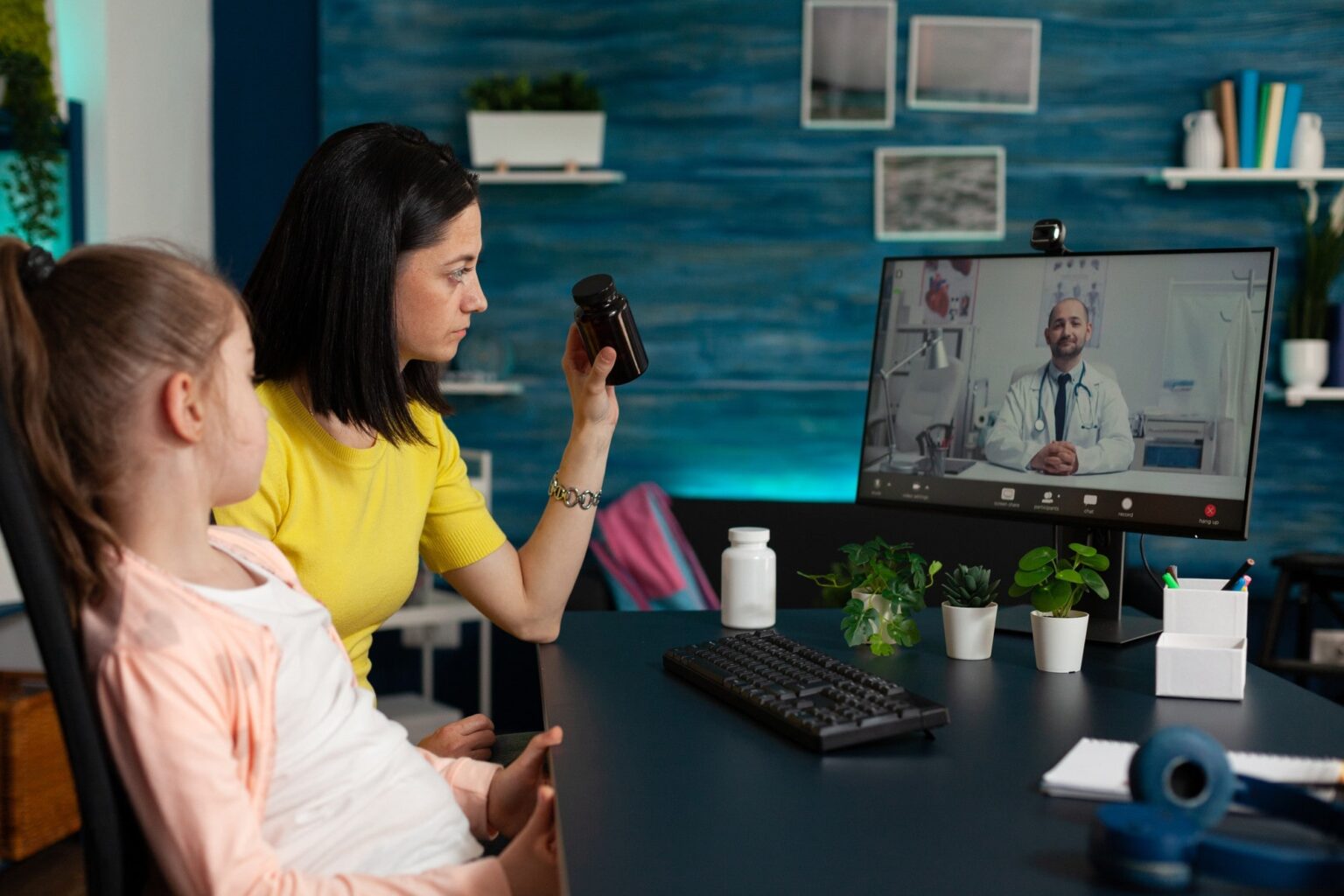Telemedicine plays a vital role in pediatric healthcare by enabling remote consultations, improving access to specialized care, and facilitating convenient healthcare delivery for children and their families. Here are some ways in which telemedicine enhances pediatric healthcare:
Remote Consultations: Telemedicine allows pediatricians and specialists to conduct remote consultations with children and their parents or caregivers. Through video conferencing or virtual visits, healthcare providers can assess a child’s symptoms, provide medical advice, and recommend appropriate treatment options. Remote consultations eliminate the need for unnecessary travel and provide timely access to healthcare, especially for families in rural or underserved areas.
Pediatric Triage: Telemedicine platforms enable healthcare providers to perform pediatric triage remotely. Parents or caregivers can communicate with pediatric nurses or triage specialists via video or audio consultations to evaluate a child’s condition and determine the appropriate level of care required. Teletriage helps prioritize cases, provide guidance on home care, and direct families to the most suitable healthcare setting for further evaluation or treatment.
Specialist Access: Telemedicine bridges the gap between pediatricians and specialists, ensuring children have access to specialized care regardless of their geographical location. Pediatricians can collaborate with specialists remotely, sharing medical records, test results, and images for consultation and obtaining expert opinions. This enables children to receive specialized care without the need for long-distance travel, reducing stress and inconvenience for both children and their families.
Follow-up Care: Telemedicine is particularly beneficial for pediatric follow-up care. Children with chronic conditions or those recovering from surgeries can have virtual visits with their healthcare providers, reducing the number of in-person visits while ensuring continuity of care. Telemedicine allows healthcare providers to monitor progress, review treatment plans, address concerns, and make necessary adjustments remotely, improving convenience and minimizing disruption to the child’s daily routine.
Parental Education and Support: Telemedicine offers opportunities for parental education and support. Pediatricians can conduct virtual sessions to educate parents on topics such as newborn care, breastfeeding, child development, nutrition, and behavioral issues. Telemedicine also provides a platform for parents to seek guidance, ask questions, and receive support from pediatricians, enhancing their ability to care for their children effectively.
Mental Health Services: Telemedicine plays a crucial role in delivering mental health services to children. Through secure video conferencing, children can access mental health professionals for therapy sessions, counseling, and behavioral interventions. Telemedicine ensures that children in remote areas or those with limited access to mental health services can receive timely and appropriate care, addressing mental health challenges early on.
School-Based Telemedicine: Telemedicine is increasingly being integrated into school settings, allowing children to access healthcare services conveniently during school hours. With the help of telemedicine, healthcare providers can remotely assess and treat minor illnesses, injuries, or chronic conditions, reducing school absenteeism and promoting the overall well-being of children.
Telemedicine in pediatric healthcare brings numerous benefits, including improved access to care, reduced travel burden, timely interventions, and enhanced parental education and support. It is important to ensure that telemedicine platforms and processes are designed with consideration for the unique needs of pediatric patients, including child-friendly interfaces, appropriate privacy protections, and effective communication with parents or caregivers. By leveraging telemedicine, pediatric healthcare can overcome geographical barriers and provide high-quality care to children, contributing to their overall health and well-being.



